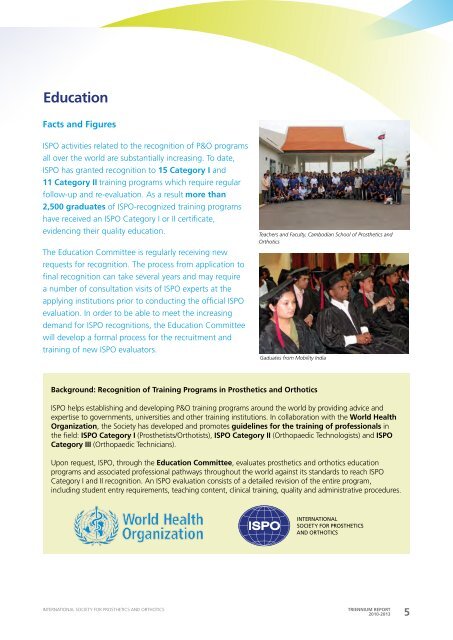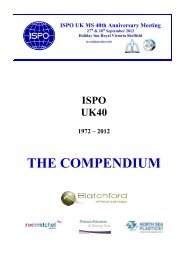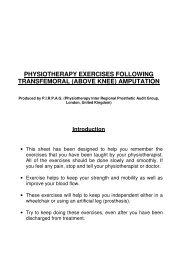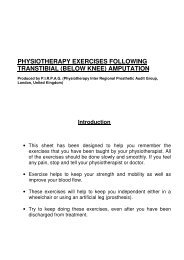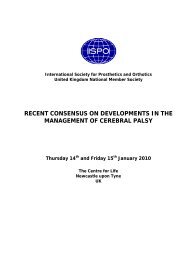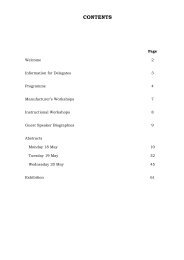ISPO Triennium report 2010 - 2013
ISPO Triennium report 2010 - 2013
ISPO Triennium report 2010 - 2013
You also want an ePaper? Increase the reach of your titles
YUMPU automatically turns print PDFs into web optimized ePapers that Google loves.
Education<br />
Facts and Figures<br />
<strong>ISPO</strong> activities related to the recognition of P&O programs<br />
all over the world are substantially increasing. To date,<br />
<strong>ISPO</strong> has granted recognition to 15 Category I and<br />
11 Category II training programs which require regular<br />
follow-up and re-evaluation. As a result more than<br />
2,500 graduates of <strong>ISPO</strong>-recognized training programs<br />
have received an <strong>ISPO</strong> Category I or II certificate,<br />
evidencing their quality education.<br />
The Education Committee is regularly receiving new<br />
requests for recognition. The process from application to<br />
final recognition can take several years and may require<br />
a number of consultation visits of <strong>ISPO</strong> experts at the<br />
applying institutions prior to conducting the official <strong>ISPO</strong><br />
evaluation. In order to be able to meet the increasing<br />
demand for <strong>ISPO</strong> recognitions, the Education Committee<br />
will develop a formal process for the recruitment and<br />
training of new <strong>ISPO</strong> evaluators.<br />
Teachers and Faculty, Cambodian School of Prosthetics and<br />
Orthotics<br />
Gaduates from Mobility India<br />
Background: Recognition of Training Programs in Prosthetics and Orthotics<br />
<strong>ISPO</strong> helps establishing and developing P&O training programs around the world by providing advice and<br />
expertise to governments, universities and other training institutions. In collaboration with the World Health<br />
Organization, the Society has developed and promotes guidelines for the training of professionals in<br />
the field: <strong>ISPO</strong> Category I (Prosthetists/Orthotists), <strong>ISPO</strong> Category II (Orthopaedic Technologists) and <strong>ISPO</strong><br />
Category III (Orthopaedic Technicians).<br />
Upon request, <strong>ISPO</strong>, through the Education Committee, evaluates prosthetics and orthotics education<br />
programs and associated professional pathways throughout the world against its standards to reach <strong>ISPO</strong><br />
Category I and II recognition. An <strong>ISPO</strong> evaluation consists of a detailed revision of the entire program,<br />
including student entry requirements, teaching content, clinical training, quality and administrative procedures.<br />
INTERNATIONAL SOCIETY FOR PROSTHETICS AND ORTHOTICS<br />
TRIENNIUM REPORT<br />
<strong>2010</strong>-<strong>2013</strong> 5


